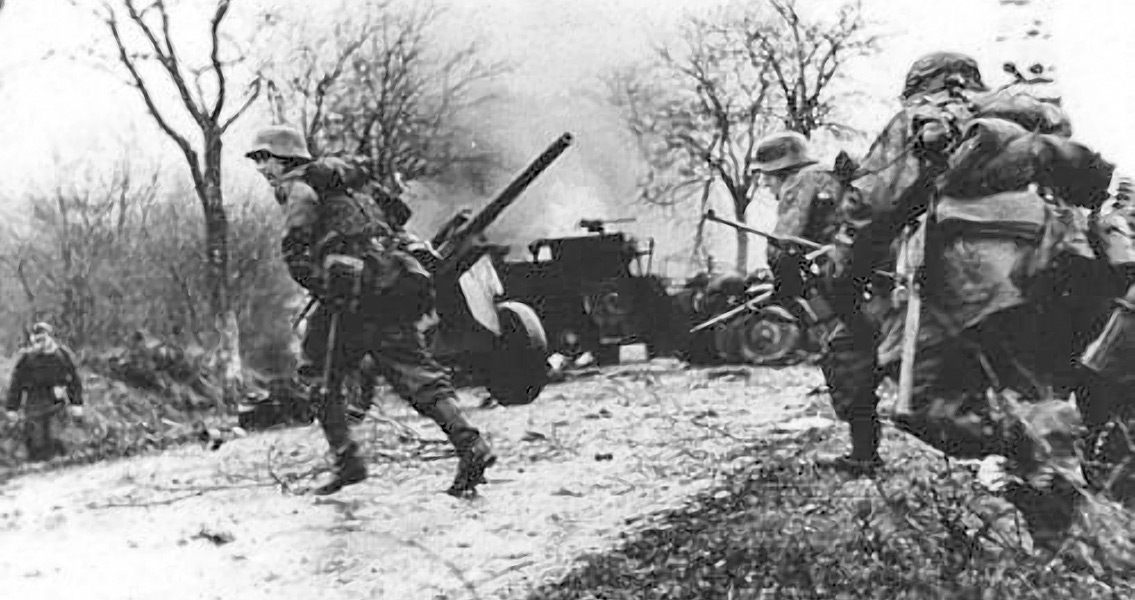<![CDATA[History allows us to understand our modern world. One of the most important historical periods for understanding how our twenty-first century world took shape is the Second World War. Historians play a key part in this process as they unpack these stories and their complicated nuances, allowing us to understand our past. One of the most prominent historians who has made the Second World War accessible for people is Anthony Beevor. Beevor's works have been translated into over 30 languages and sold in excess of 6 million copies, it is hard to think of any single historian who has had such an impact on public understandings of the past. Beevor has recently completed another work, focusing on one of the Second World War's most ferocious theatres of war: the Ardennes. In a talk given on Tuesday 26th May, in St Ann's Church in Manchester - which this writer was present for - Beevor discussed his new work. More than 1.5 million soldiers on all sides fought in the Ardennes forests between December 1944 and January 1945 in what is commonly known as the Battle of the Bulge. For Beevor, the Ardennes forest campaign presents an aspect of the Second World War about which most people do not know the details. In his talk, Beevor vividly described the conditions which faced Allied forces in the freezing winter in the densely wooded Ardennes. Rain battered soldiers and equipment, and even when the rains had passed, the sodden trees continued dripping. Ammunition rusted and boots rotted away. During the sixteen-hour nights, temperatures would drop so low that water canteens would freeze. Blood in dead bodies would also freeze, bursting capillaries in the face and leading to corpses having a claret red colouration. Combat exhaustion, the term given to the psychological burnout suffered by soldiers in war, spread rapidly, accounting for one quarter of all casualties, Beevor explained. A running joke in the Ardennes was that after five days in the Ardennes you would start talking to the trees, after six they would reply. The Battle of the Bulge was one of the most gruesome and brutal events in the Second World War; Beevor described the engagement as the "Western Front's Stalingrad" for the ferocity of fighting in a gruelling climate. One Allied officer that Beevor quoted referred to the Ardennes forest as 'an open wound.' One of the most interesting parts of Beevor's talk focused on the brutal treatment of prisoners of war. Executions of POWs were commonplace throughout the Second World War, Beevor noted, with many units preferring to shoot captured enemies rather than go through the hassle of processing and containing them. One of the most shocking instances of this practice was the Malmedy massacre, where 84 American POWs were shot by an SS unit commanded by Joachim Peiper. As POWs were executed quickly, no figures exist and no prosecutions followed; as Beevor rather poetically put it, "it is hard to get justice in war." Challenging popular conceptions of the Second World War, Beevor noted that these atrocities were not only committed by Axis forces. In direct opposition to the 'Greatest Generation' narrative of the Allies in the Second World War, Beevor traced a history of massacres by Allied forces who often had a determination not to take German prisoners. This attitude was widespread, Beevor argued, reaching the highest levels of command, something which Beevor described as "[un]justifiable under any circumstances". Beevor's talk, and his new work, provide a detailed overview of the Ardennes theatre of war. Beevor did not offer much analysis of events, motivations or sources, but his work remains important. By making the Ardennes accessible to a wider audience, he hopes to open people's eyes to an event which is not fully understood in the public realm. For his uncanny ability to make the lives of ordinary combatants and civilians so vivid, and for revitalising interest in the past, he must be praised. For more information: www.anthonybeevor.com]]>
The Ardennes and the Battle of the Bulge, by Anthony Beevor
